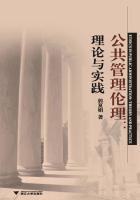but if not, let me first make entrance to my reply, with a pretty tale, and well worth the hearing.I have oftentimes heard it reported, that (long since) there was a very wealthy man, who (among other precious Jewels of his owne) had a goodly Ring of great valew; the beauty and estimation whereof, made him earnestly desirous to leave it as a perpetuall memory and honour to his successors.Whereupon, he willed and ordained, that he among his male children, with whom this Ring (being left by the Father) should be found in custody after his death; hee and none other, was to bee reputed his heire, and to be honoured and reverenced by all the rest, as being the prime and worthiest person.That Sonne, to whom this Ring was left by him, kept the same course to his posterity, dealing (in all respects) as his predecessor had done; so that (in short time) the Ring (from hand to hand) had many owners by Legacie.
At length, came to the hand of one, who had three sonnes, all of them goodly and vertuous persons, and verie obedient to their Father: in which regard, he affected them all equally, without any difference or partiall respect.The custome of this Ring being knowne to them, each one of them (coveting to beare esteeme above the other) desired (as hee could best make his meanes) his Father, that in regard he was now growne very old, he would leave that Ring to him, whereby he should bee acknowledged for his heire.The good man, who loved no one of them more then the other, knew not how to make his choise, nor to which of them he should leave the Ring: yet having past his promise to them severally, he studied by what meanes to satisfie them all three.Wherefore, secretly having conferred with a curious and excellent Goldsmith, hee caused two other Rings to bee made, so really resembling the first made Ring, that himselfe (when he had them in his hand) could not distinguish which was the right one.
Lying upon his death-bed, and his Sonnes then plying him by their best opportunities, he gave to each of them a Ring.And they (after his death) presuming severally upon their right to the inheritance and honor, grew to great contradiction and square: each man producing then his Ring, which were so truely all alike in resemblance, as no one could know the right Ring from the other.And therefore, suite in Law, to distinguish the true heire to his Father, continued long time, and so it dooth yet to this very day.In like manner my good Lord, concerning those three Lawes given by God the Father, to three such people as you have propounded: each of them do imagine that they have the heritage of God, and his true Law, and also duely to performe his Commandements; but which of them do so indeede, the question (as of the three Rings) is yet remaining.
Saladine well perceyving, that the Jew was too cunning to bee caught in his snare, and had answered so well, that to doe him further violence, would redound unto his perpetuall dishonour; resolved to reveale his neede and extremity, and try if hee would therein friendly sted him.Having disclosed the matter, and how he purposed to have dealt with him, if he had not returned so wise an answere; the Jew lent him so great a sum of money as hee demanded, and Saladine repayed it againe to him justly, giving him other great gifts beside:
respecting him as his especiall friend, and maintaining him in very honourable condition, neere unto his owne person.
THE FIRST DAY, THE FOURTH NOVELL
WHEREIN MAY BEE NOTED, THAT SUCH MEN AS WILL REPROVE THOSEERROURS IN OTHERS, WHICH REMAINE IN THEMSELVES, COMMONLY ARETHE AUTHORS OF THEIR OWNE REPREHENSION
A Monke having committed an offence, deserving to be very greevously punished, freed himselfe from the paine to be inflicted on him, by wittily reprehending his Abbot, with the very same fault.
So ceased Madame Philotnena, after the conclusion of her Tale:
when Dioneus sitting next unto her, (without tarrying for any other command from the Queene, knowing by the order formerly begun, that hee was to follow in the same course) spake in this manner.
Gracious Ladies, if I faile not in understanding your generall intention, we are purposely assembled heere to tell Tales; and especially such as may please our selves.In which respect, because nothing shold be done disorderly, I hold it lawfull for every one (as our Queene decreed before her Dignity) to relate such a Noveltie, as in their owne judgement may cause most contentment.
Wherefore having heard that by the good admonitions of Jehannot de Chevigny, Abraham the Jew was advised to the salvation of his soule, and Melchisedech (by his witty understanding) defended his riches from the traines of Saladine: I now purpose to tell you in a few plaine words, without feare of receiving any reprehension, how cunningly a Monke compassed his deliverance, from a punishment intended towards him.
There was in the Country of Lunigiana (which is not far distant from our owne) a Monastery, which sometime was better furnished with holinesse and Religion, then now adayes they are: wherein lived (among divers other) a yong Novice Monke, whose hot and lusty disposition (being in the vigour of his yeeres) was such, as neither Fasts nor prayers had any great power over him.It chanced on a fasting day about high noon, when all the other Monkes were asleep in their Dormitaries or Dorters, this frolicke Friar was walking alone in their Church, which stoode in a very solitarie place, where ruminating on many matters by himselfe, hee espyed a prettie handsome Wench (some Husbandmans daughter in the Countrey, that had beene gathering rootes and hearbes in the field) upon her knees before in Altar;whom he had no sooner seene, but immediately hee felt effeminate temptations, and such as ill fitted with his profession.















